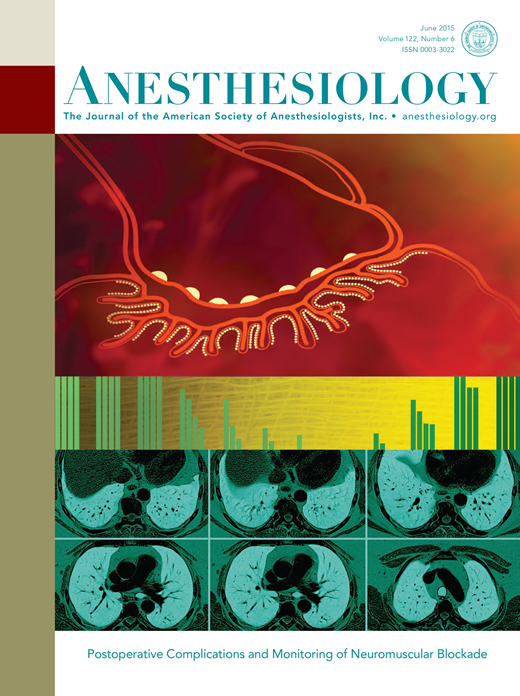术前抑郁与大手术后住院时间的关系:一项系统回顾和荟萃分析。
IF 9.1
1区 医学
Q1 ANESTHESIOLOGY
引用次数: 0
摘要
背景术前抑郁在手术患者中很常见,并与不良结果相关,如术后即刻疼痛和谵妄。目前尚不清楚抑郁症是否也会导致术后住院时间延长。本综述旨在评估术前抑郁与术后住院时间之间的关系。方法:我们对报告术前抑郁的成年患者接受住院手术的术后住院时间的研究进行了系统回顾和荟萃分析。该研究已在PROSPERO (ID: CRD42022296532)进行预注册。检索了Medline、Embase、Cochrane Controlled Register of Trials和PsycINFO数据库,检索时间从研究开始到2023年6月30日。主要结局是有抑郁和无抑郁患者术后住院时间的平均差异,采用多层级随机效应荟萃分析进行汇总。次要结局是未调整和调整的抑郁症患者延长住院时间的优势比,这些也汇总在荟萃分析中。GRADE用于评估确定性,ROBINS-E用于评估偏倚风险。结果在9869项筛选研究中纳入57项(n = 27,708,719名受试者),其中26项为前瞻性研究,31项为回顾性研究。术前抑郁患者术后平均住院时间比无抑郁患者长0.98天。(95% ci 0.35-1.62)。在二次分析中,术前抑郁患者延长住院时间的未调整和调整的优势比分别为1.31 (95% CI 0.94-1.82)和1.27 (95% CI 1.11-1.46)。结论:该荟萃分析表明,术前有抑郁史或活跃抑郁症状的患者术后住院时间更长,但证据受到偏倚风险和发表偏倚的限制。虽然术前抑郁症筛查可以潜在地确定有针对性干预的高危患者,但需要进一步的研究来评估抑郁症干预在改善预后(如住院时间)方面的效果。本文章由计算机程序翻译,如有差异,请以英文原文为准。
The association between preoperative depression and length of stay after major surgery: a systematic review and meta-analysis.
BACKGROUND
Preoperative depression is common among surgical patients and is associated with undesirable outcomes, such as pain and delirium in the immediate postoperative period. It is unclear whether depression also leads to longer postsurgical hospitalization. This review aimed to evaluate the association between preoperative depression and postoperative length of stay.
METHODS
We conducted a systematic review and meta-analysis of studies that reported postsurgical length of stay in adult patients with preoperative depression who underwent inpatient surgery. The study was pre-registered with PROSPERO (ID: CRD42022296532). Medline, Embase, Cochrane Controlled Register of Trials, and PsycINFO databases were searched from inception to June 30, 2023. The primary outcome was the mean difference in postoperative length of stay between patients with and without depression, which was pooled using multi-level random-effects meta-analysis. Secondary outcomes were unadjusted and adjusted odds ratios of extended length of stay in patients with depression, which were also pooled in meta-analyses. GRADE was used to evaluate certainty, and ROBINS-E was used to assess risk of bias.
RESULTS
57 of the 9869 screened studies were included (n = 27,708,719 participants), of which 26 were prospective and 31 were retrospective. Patients with preoperative depression had a mean postoperative length of stay 0.98 days longer than those without. (95% CI 0.35-1.62). In secondary analyses, the unadjusted and adjusted odds ratios for an extended length of stay for patients with preoperative depression were 1.31 (95% CI 0.94-1.82) and 1.27 (95% CI 1.11-1.46), respectively.
CONCLUSIONS
This meta-analysis demonstrated that patients with a history of depression or active depressive symptoms before surgery had longer postoperative hospitalization, though evidence was limited by risk of bias and publication bias. While preoperative screening for depression could potentially identify at-risk patients for targeted interventions, further research is needed to evaluate the efficacy of depression interventions in improving outcomes such as length of stay.
求助全文
通过发布文献求助,成功后即可免费获取论文全文。
去求助
来源期刊

Anesthesiology
医学-麻醉学
CiteScore
10.40
自引率
5.70%
发文量
542
审稿时长
3-6 weeks
期刊介绍:
With its establishment in 1940, Anesthesiology has emerged as a prominent leader in the field of anesthesiology, encompassing perioperative, critical care, and pain medicine. As the esteemed journal of the American Society of Anesthesiologists, Anesthesiology operates independently with full editorial freedom. Its distinguished Editorial Board, comprising renowned professionals from across the globe, drives the advancement of the specialty by presenting innovative research through immediate open access to select articles and granting free access to all published articles after a six-month period. Furthermore, Anesthesiology actively promotes groundbreaking studies through an influential press release program. The journal's unwavering commitment lies in the dissemination of exemplary work that enhances clinical practice and revolutionizes the practice of medicine within our discipline.
 求助内容:
求助内容: 应助结果提醒方式:
应助结果提醒方式:


